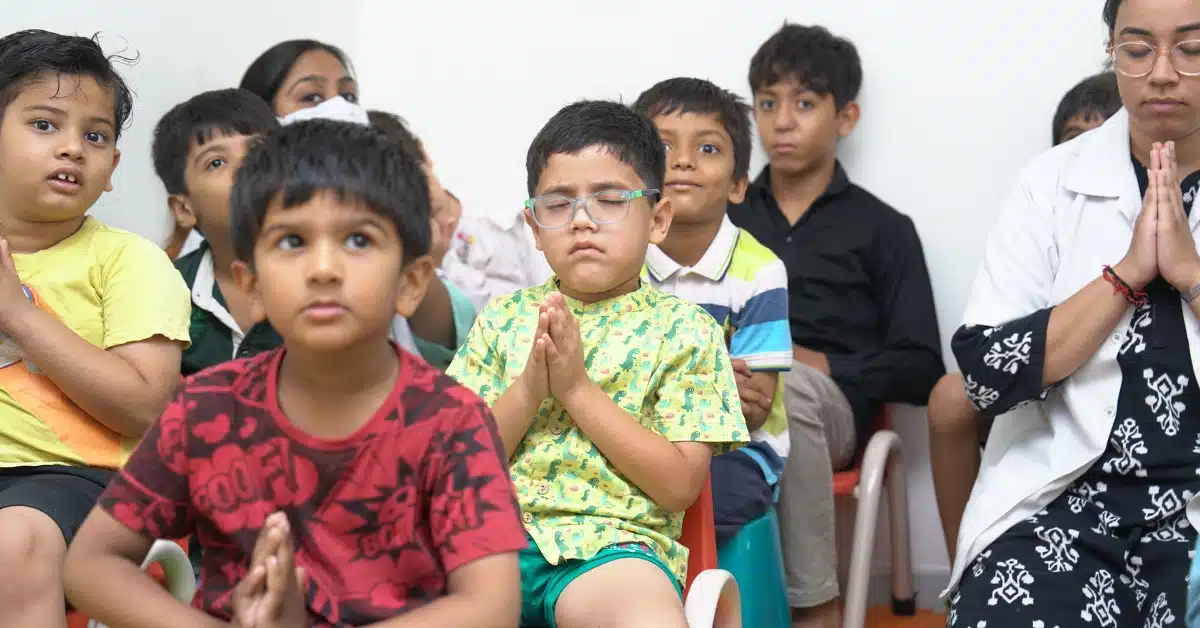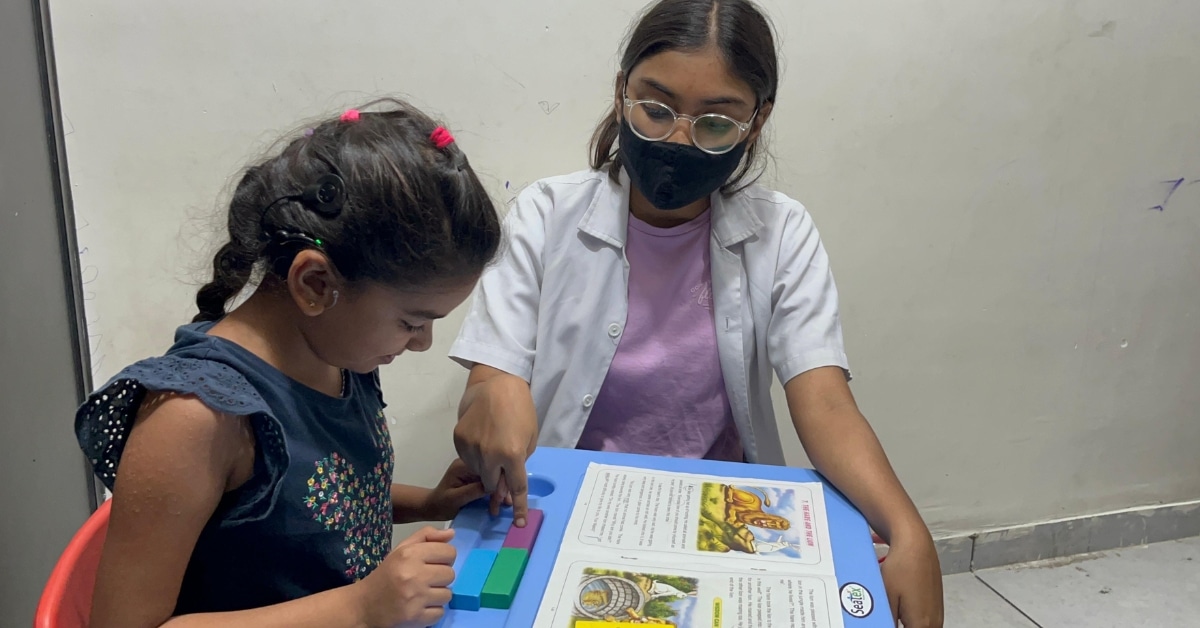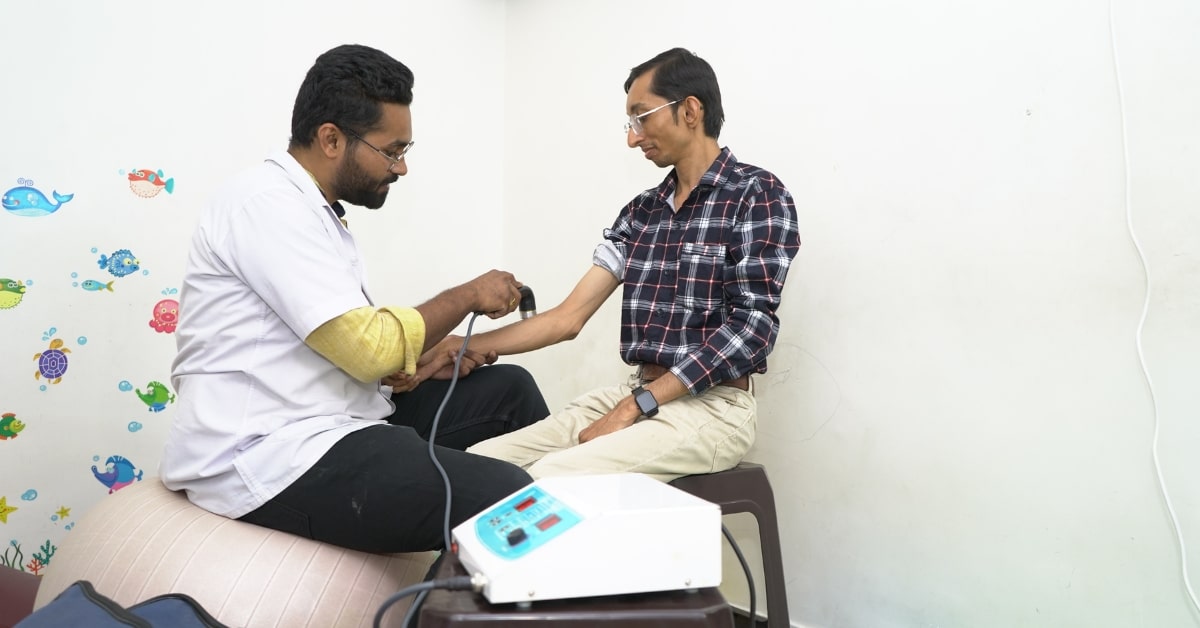
Speech & Language Therapy Centre in Vadodara
At RDCC Healthcare, the Best Speech & Language Therapy Centre in Vadodara provides expert therapy for communication and swallowing disorders related to Speech, Language, Cognition, and Swallowing, they are trained professionals who work with individuals of all Ages, from Infants to Older Adults. As the best Speech & Language Therapy Centre in Vadodara, whether it’s overcoming Speech Impediments (Shutter), improving Language Skills, enhancing Cognitive Abilities, or managing Swallowing Disorders, our Speech & Language Therapy Specialists are committed to providing personalized care and support to help individuals achieve their
What is
Speech & Language Therapy
Speech & Language Therapy, also known as Speech-Language Pathology, is a specialized healthcare profession focused on Diagnosing, Assessing, and Treating Communication Disorders and Swallowing Difficulties. Speech-Language Pathologists (SLPs), who are trained professionals in this field, work with individuals of all ages, from Infants to Older Adults, to help them overcome various challenges related to Speech, Language, Cognition, and Swallowing.
Benefits of
Speech & Language Therapy
Speech & Language Therapy can benefit individuals of all ages who experience communication disorders or difficulties, as well as those with swallowing disorders (dysphagia). Here’s a breakdown of who can benefit from speech and language therapy:
Children
Adolescents and Teens
Teenagers experiencing Speech, Language, or Fluency Disorders that affect their Social Interactions, Academic Performance, or Self-Esteem.
Adolescents with voice disorders, such as Vocal Nodules or Vocal Cord Dysfunction, which may result from Vocal Abuse or Misuse.
Adults
Seniors
Older Adults experiencing age-related changes in Speech, Language, or Swallowing function, such as Dysphagia, Voice Changes, or Cognitive-Communication Difficulties.
Seniors with Neurodegenerative Diseases like Alzheimer’s Disease or Dementia who may require support with Communication and Swallowing as their Condition Progresses.
Individuals with Medical Conditions
People with Medical Conditions or Injuries Affecting the Head, Neck, or Vocal Tract, such as Head and Neck Cancer, Cleft Lip and Palate, or Laryngectomy.
Patients undergoing Treatments that may affect Speech, Language, or Swallowing function, such as Radiation Therapy or Chemotherapy for Cancer.
What are
Speech Disorders
Speech Disorders encompass a variety of difficulties that affect the Production, Articulation, Fluency, or Quality of Speech Sounds. These disorders can result from various factors, including Developmental Delays, Neurological Conditions, Structural Abnormalities, or Acquired Injuries. Here are some of the Main Types of Speech Disorders:
Articulation Disorders
Articulation Disorders involve difficulties with the physical production of Speech Sounds. This may include Substituting One Sound for Another (e.g. saying “wabbit” instead of “rabbit”), Omitting Sounds, Distorting Sounds, or Adding Extra Sounds.
Phonological Disorders
Phonological Disorders involve Patterns of Errors in Speech Sound Production that affect Entire Classes of Sounds or Sound Sequences. For example, A Child may have no problem saying “Key” or “Go” but may Pronounce “No” for “Note” and “Mou” for “Mouse”.
Fluency Disorders
Fluency Disorders, such as Stuttering, involve disruptions in the normal flow of speech. Individuals with Fluency Disorders may experience Repetitions of Sounds, Syllables, or Words; Prolongations of Sounds (Holding a Sound for a Longer Period of Time); or Involuntary Pauses or Blocks in Speech.
Voice Disorders
Voice Disorders involve Abnormalities in the Quality, Pitch, Loudness, or Resonance of the Voice. This can result from Issues with the Vocal Cords, Vocal Folds, or Other Structures of the Larynx. Voice Disorders may manifest as Hoarseness, Breathiness, Strain, or Pitch Problems.
What are
Language Disorders
Language Disorders refer to Difficulties with Understanding and/or Using Language that significantly impact Communication and Social Interaction. These Disorders can affect various aspects of Language, including Comprehension, Expression, and Pragmatic (Social) Language Skills. Here are Some of the Main Types of Language Disorders:
Therapies involved in
Speech & Language Therapy
Speech & Language Therapy involves a Range of Therapeutic Approaches and Techniques tailored to address specific Communication Challenges and Goals. Here are some of the Therapies commonly used in Speech & Language Therapy:
Articulation Therapy
Articulation Therapy focuses on Improving the Accuracy and Clarity of Speech Sounds. These Techniques may Include Auditory Discrimination Exercises, Oral Motor Exercises, and Phonetic Placement Techniques to help Patients produce Target Sounds correctly.
Language Therapy
Language Therapy targets various aspects of Language, including Vocabulary, Grammar, Comprehension, and Expression. These activities may involve Storytelling, Conversation Practice, Language Games, and Structured Exercises to Build Language Skills.
Fluency Therapy
Fluency Therapy is designed to help individuals who Stutter or Experience Disruptions in the Flow of Speech. These Techniques may include Slow and Stretched Speech, Breathing Exercises, and Strategies to Reduce Tension and Increase Fluency.
Voice Therapy
Voice Therapy addresses voice disorders and aims to improve Vocal Quality, Resonance, Pitch, and Loudness. These Techniques may include Vocal Exercises, Resonance Exercises, Vocal Hygiene Education, and Strategies to Reduce Vocal Strain and Abuse.
Cognitive-Communication Therapy
Cognitive-Communication Therapy focuses on improving Cognitive Skills related to Communication, such as Attention, Memory, Problem-Solving, and Executive Function. These activities may include Memory Games, Attention Exercises, Problem-Solving Tasks, and Compensatory Strategies to Support Cognitive-Communication Abilities.
Swallowing Therapy (Dysphagia Rehabilitation)
Swallowing Therapy is designed to address Difficulties with Swallowing Function (Dysphagia) and Improve the Safety and Efficiency of Swallowing. These Techniques may include Swallowing Exercises, Dietary Modifications, Positioning Techniques, and Sensory-Motor Stimulation to Strengthen Swallowing Muscles and Improve Coordination.
Augmentative and Alternative Communication (AAC)
Augmentative and Alternative Communication (AAC) involves using Alternative Modes of Communication, such as Sign Language, Picture Communication Boards, or Electronic Communication Devices, for Individuals with Severe Communication Impairments. This Therapy focuses on Teaching Patients How to effectively use AAC Systems to express their Needs, Desires, and Thoughts.
Social Skills Training
Social Skills Training Targets Social Language Skills and helps individuals improve their ability to Navigate Social Interactions, Understand Social Cues, and Participate in Conversations and Group Activities. These Activities may include Role-Playing, Social Stories, Video Modelling, and Structured Social Skills Groups.





